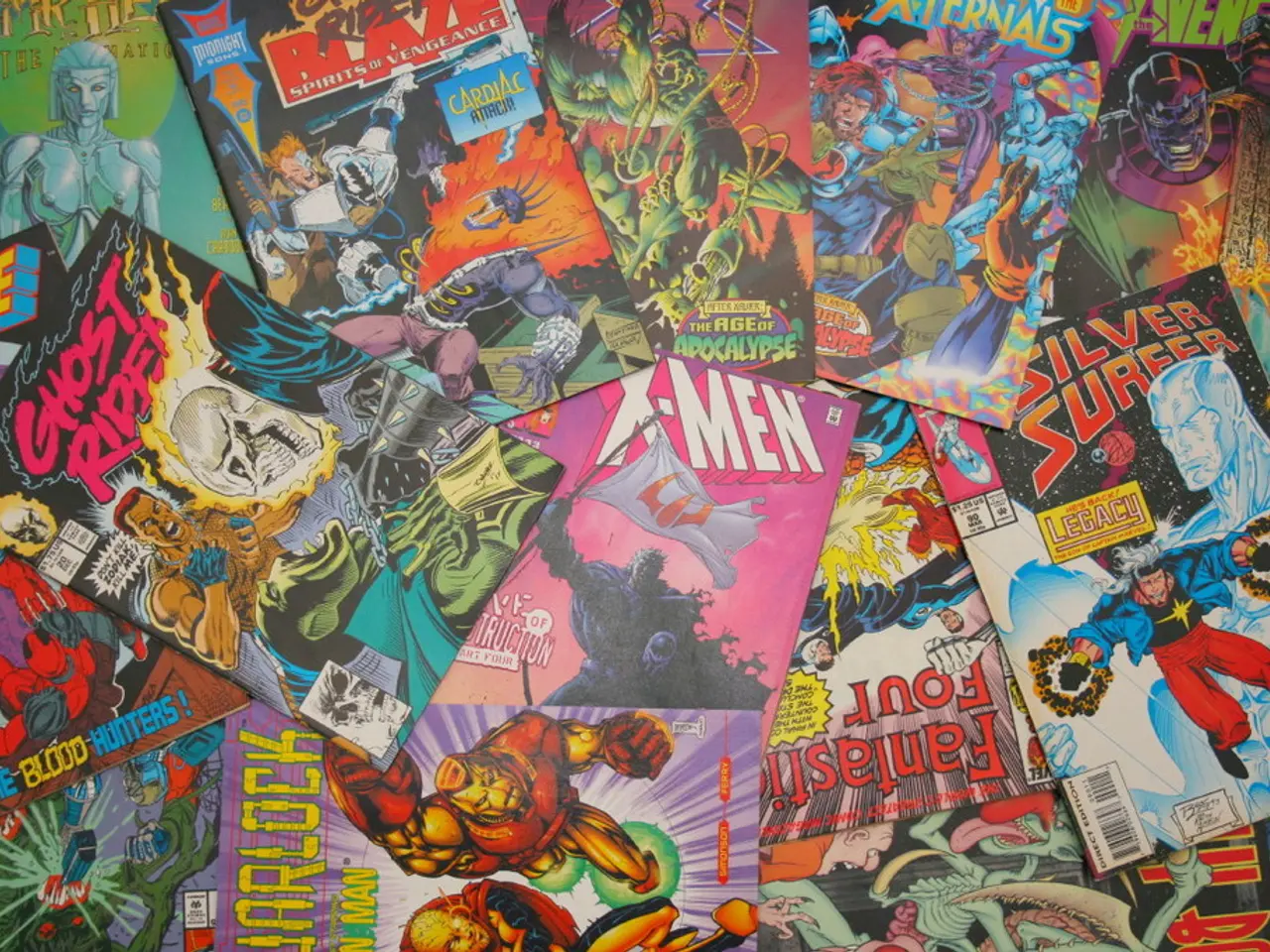Unveiling expanding African comic scene showcases daring new artistic and narrative expressions
In the heart of Africa, a new wave of storytelling is emerging, one that provides a unique and captivating window into the continent's culture, history, and experiences. This revolution is being led by African comics, a burgeoning industry that is redefining the landscape of visual storytelling.
Rooted deeply in African cultural identity, folklore, and spirituality, African comics engage with social and political themes such as anticolonial resistance, social justice, and youth empowerment. These comics synthesize various African religious practices and mythologies, presenting indigenous spirituality with greater authenticity and respect than earlier Western portrayals that often exoticized or demonized them.
Themes in African comics range from cultural pride and anticolonial resistance to urban life and social justice. Youth empowerment is a common narrative strand, reflecting the vibrant energy and aspirations of Africa's youth. African deities, legendary figures, and mythological motifs, such as characters inspired by Anansi the Spider (from Akan tradition), are incorporated, elevating African spirituality to par with European or Greek mythology.
African comics serve as platforms for presenting authentic African identities, countering colonial stereotypes, and preserving cultural heritage while offering creative expression. Unlike Western comics dominated by spandex-clad heroes, African comics often feature superheroes deeply connected to history, folklore, and ancestral memory—characters seen as protectors of African heritage and futures.
The historical and social context of Africa is also reflected in these comics, contributing to a revival of Black-centered storytelling with more nuanced and respectful portrayals that challenge earlier racial biases prevalent in mainstream comics. The theme of Afrofuturism is prevalent, where traditional, rural elements are interwoven with futuristic technology.
A decade ago, the African comics scene was niche and underground. However, today, there are numerous comic publishers across the continent, and the industry has flourished, providing a means for African artists and storytellers to reach other creative mediums and larger audiences. Collaborations with global giants like Disney, Cartoon Network, and HBO Max have further propelled African comics onto the international stage.
Major comic conventions like Comic Con Ibadan, Comic Con Africa, and OtakuKon have brought African comic book fans together, fostering a sense of community and camaraderie. The growth of the comic scene has been rapid, with freelance comic artists like Yussuf Adeleye noticing a surge in African comic creators around 2015.
One such creator is Paul Louise-Julie, who aimed to create a universe exclusively inspired by African cultures with his comic, Yohance. Artists from African companies draw inspiration from a wealth of visual influences, including hairstyles, complexions, facial structures, clothing, masks, and wooden carvings.
The flourishing of the comic scene has also made digital art software like Clip Studio Paint more accessible than ever, empowering artists to bring their visions to life. African comics serve as a celebration of African culture and a rebellion against erasure, offering a unique and authentic perspective that resonates with readers around the world.
- An African artist, Paul Louise-Julie, aspired to create a universe solely inspired by African cultures with his comic, Yohance.
- African companies draw inspiration for their art from various visual influences, such as hairstyles, complexions, facial structures, clothing, masks, and wooden carvings.
- The boom in the African comics industry has made digital art software like Clip Studio Paint more accessible, enabling artists to bring their visions to life.
- African deities, legendary figures, and mythological motifs are incorporated in African comics, elevating African spirituality to the level of European or Greek mythology.
- Unique and captivating windows into the continent's culture, history, and experiences are provided through the burgeoning industry of African comics.
- Collaborations with global giants like Disney, Cartoon Network, and HBO Max have catapulted African comics onto the international stage.
- A decade ago, the African comics scene was niche and underground, but today, there are numerous comic publishers across the continent.
- The growth of the comic scene has been rapid, with freelance comic artists like Yussuf Adeleye noticing a surge in African comic creators around 2015.
- Characters in African comics are often superheroes deeply connected to history, folklore, and ancestral memory, seen as protectors of African heritage and futures.
- Major comic conventions like Comic Con Ibadan, Comic Con Africa, and OtakuKon have fostered a sense of community and camaraderie among African comic book fans.
- The themes in African comics range from cultural pride and anticolonial resistance to urban life and social justice, with youth empowerment being a common narrative strand.
- The themes of Afrofuturism are prevalent in African comics, where traditional, rural elements are interwoven with futuristic technology.
- African comics serve as platforms for presenting authentic African identities, countering colonial stereotypes, preserving cultural heritage, and offering creative expression in various fields like fashion-and-beauty, food-and-drink, home-and-garden, books, education-and-self-development, personal-growth, career-development, entertainment, and learning.




